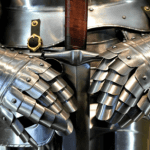Historians can use American poetry as valuable primary sources, not least to illustrate nineteenth century events and trends. I have talked about authors like John Greenleaf Whittier and Herman Melville, but another great example is Vachel Lindsay (1879-1931), who was very well known indeed in the early part of the last century. His “Bryan, Bryan, Bryan, Bryan” was published in 1919, but it was an autobiographical recollection of the events of 1896.
The 1896 election was one of the great turning points in American history, with the barnstorming campaign of William Jennings Bryan. Bryan’s historical reputation would later be all but ruined by his role in the Scopes trial, and all that is well known. A generation formed its impression of him from the film of Inherit the Wind (1960). But in 1919, Vachel Lindsay published a lengthy poetic memoir of what it was like to have been sixteen at the time, which makes Bryan’s movement sound like the youth activist upsurge of the late 1960s.
The long parade rolled on. I stood by my best girl.
She was a cool young citizen, with wise and laughing eyes.
With my necktie by my ear, I was stepping on my dear,
But she kept like a pattern without a shaken curl.
She wore in her hair a brave prairie rose.
Her gold chums cut her, for that was not the pose.
No Gibson Girl would wear it in that fresh way.
But we were fairy Democrats, and this was our day.
Note the “cool” girlfriend. If you read American popular literature at the turn of the twentieth century, in authors like Stephen Crane, you will be surprised to find just how sixties-sounding or even hippyish much of the slang is. To take one example of many, things might be so so good that they are outasight, spelled thus. Lindsay and his friends surely thought Bryan was outasight.
The account of the whole campaign makes it sound somewhere between an evangelical revival and a rock concert, and analogies to earlier Great Awakenings abound. This was utterly different from the many elections where the choice lies between the evil of two lessers: these people felt the whole world was at stake.
If you are writing about the politics or culture of the Gilded Age, every line clamors for quotation, and there are a lot of lines. It is illuminating on how religious (and specifically evangelical) rhetoric and expectations spilled over into electoral politics, making Bryan a near-literal messiah. Not just for Lindsay, Bryan’s defeat constituted a kind of Great Disappointment.
Vachel Lindsay was phenomenally well known and respected in his day, and in the immediate pre-First World War period, he was regarded as a centerpiece of American literature. Yeats was a fan and advocate of Lindsay’s work, and Edgar Lee Masters wrote his biography. Some of Lindsay’s writing still repays reading. In 1915, his landmark book The Art of the Moving Picture was one of the first books anywhere to treat film-making as serious art, and much of it is outright prophetic. That it was written as early as 1915 makes it astonishing.
At a low point of American racism and racial conflict, Lindsay wrote much that was positive and friendly about African-Americans, and specifically on black religion, but including some things that really don’t work today. You could write whole books about what his once-famous performance piece The Congo (1914) has to say about American attitudes to Africa and Africans. Those primitive stereotypes can make it tough going today, but W. E. B. DuBois said some good things about him. At a personal level, Lindsay played a key part in discovering and publicizing Langston Hughes.
In more recent times, Ishmael Reed published perceptively on Lindsay, including on the Bryan poem, although he found Lindsay “kind of corny.” With however many degrees of irony, Reed took the title of his wild and wonderful 1972 magic realist novel Mumbo Jumbo from the rhythmic refrain of “The Congo.” If Mumbo Jumbo is not the most influential African-American novel of its era, it’s high on anyone’s short list. I think Lindsay would have loved it.
I have been offering a couple of quick examples to illustrate my theme about poets and poetry. A whole other post could address those poets who wrestled with American history, who tried to comprehend and reconcile with it, and who in the process redefined our understanding of that history. Allen Tate is a wonderful example, with his Ode to the Confederate Dead (of course, that is about plenty more than just Confederates and the Lost Cause in any simplistic sense!) More next time.
If you have ideas for poetry that can serve in this way, and particularly for illuminating the politics or religion of a particular era of US history, please do share.













